Macronutrients
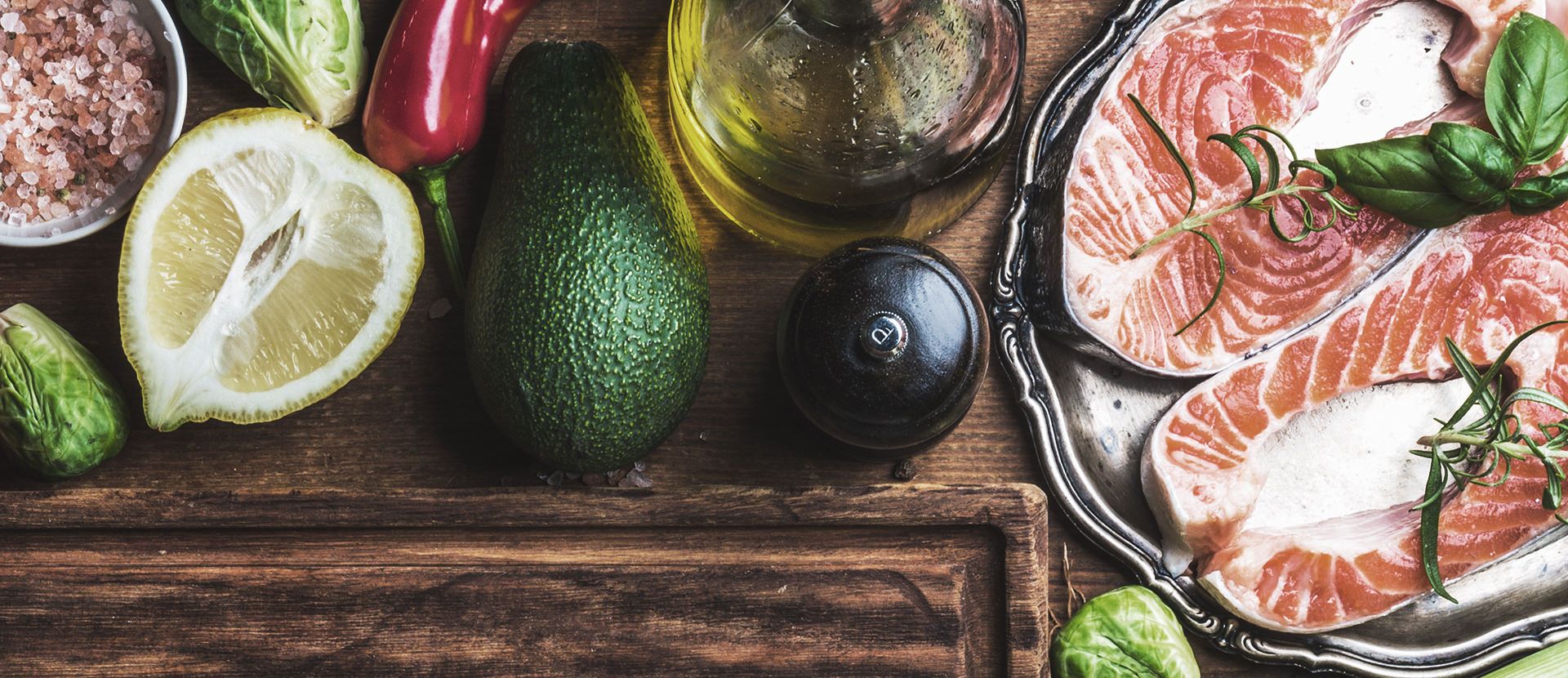
Proteins, fats and carbohydrates – the staple ingredients of our diet
“Macronutrients” are those components in our daily diet that supply us with energy (calories), i.e. proteins, fats and carbohydrates. This definition is blurry, however, because macronutrients are or should also be important suppliers of “building material”.
1. PROTEINS
Protein is one of the building blocks of every cell in our body. Proteins also serve our body as an energy supplier, but they are mainly transformed to endogenous protein, especially in the form of hormones, enzymes, neurotransmitters, muscle and connective tissue. Amino acids are the smallest modules of proteins. There are 20 different amino acids, 8 of which are essential (vital) as structural building material.
Daily protein requirements:
A human adult with a normal workload needs about 0.8 grams of protein per kilogram of body weight per day. Foods that contain a high amount of essential amino acids are preferable (fish, eggs, nuts, potatoes).
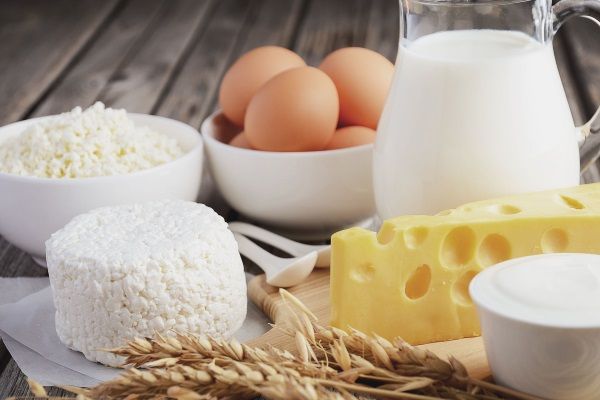
2. FATS AND OILS (LIPIDS)
Fats and oils also provide our body with energy, but also protect it against the cold and mechanical stresses and supply the basic substance for the brain and nervous system. Our dietary fats are in particular – and we tend to forget this – the “building blocks” (biological bricks) of our cells. As unsaturated fatty acids are very susceptible to oxidation when exposed to light and oxygen (fats and oils quickly become rancid), the food industry already developed the industrial process called “hydrogenation” decades ago. In this process, the biologically valuable double bonds of fatty acids are broken open, considerably expanding the limits of how much the product can be heated as well as its shelf life. Their biological benefits are however lost as part of this. Nowadays, millions of tons of these hydrogenated fats and oils are produced every year. They serve as frying oils to produce crisps and salty snacks, as flavour enhancers for soft and light products, sweets and pastries, and as frying and baking oils for nearly all convenience food. Ironically, these sub-standard fats and oils are then listed as “vegetable oils” in the ingredient information of convenience food, suggesting a high biological value to consumers that is not actually there.
In contrast, carefully produced vegetable oils contain high-quality unsaturated fatty acids which are vital for our body. These highly unsaturated fatty acids support the oxygen supply in our body, promote haematosis, strengthen our nerve substance, immune system, skin, heart and circulation. As an additional plus point, highly unsaturated fatty acids from plants and fish oils do not even make us fat. On the contrary: they help us lose weight, even if that may sound like a paradox.
Daily fat and oil needs:
A human adult with a normal workload needs about 0.8 grams of fat per kilogram of body weight per day, i.e. a total of approx. 50-80 grams. Roughly a third of our daily fat intake should consist of (poly)unsaturated fatty acids, because our body cannot produce them itself. Unsaturated fatty acids are more flexible than saturated ones, which means that our body substance (brain, heart and vessels, muscles, immune cells) becomes more flexibile and resistant the more we intake these high-quality fatty acids.

3. CARBOHYDRATES (SACCHARIDES)
Carbohydrates mainly serve as the energy supply for our body, but they are also structural building material (e.g. for our connective tissue). Carbohydrates consist of individual sugar molecules. Sugar and carbohydrates are also called saccharides. Depending on the number of sugar particles that make up carbohydrates, we distinguish between monosaccharides (mono = one), disaccharides (di = two), oligosaccharides (oligo = few) and polysaccharides (poly = several).
Monosaccharides and disaccharides are usually highly water-soluble, have a sweet taste and are directly introduced into our blood via the small intestine. We generally call them sugar. Polysaccharides are less soluble. They need to be broken down into small parts first, which is done by digestive enzymes. Only then will they be absorbed by the human body. Polysaccharides, as opposed to sugar, do not taste sweet. In our daily life we know polysaccharides as starch or flour (usually made from grains, rice or potatoes). Starch flours may not taste sweet, but chemically and from a caloric energy perspective they are simply “polymerised” sugar. One hundred grams of white flour contain as many calories as 28 lumps of sugar, namely 420 kcal. We often overlook this fact simply because white flour does not taste sweet.
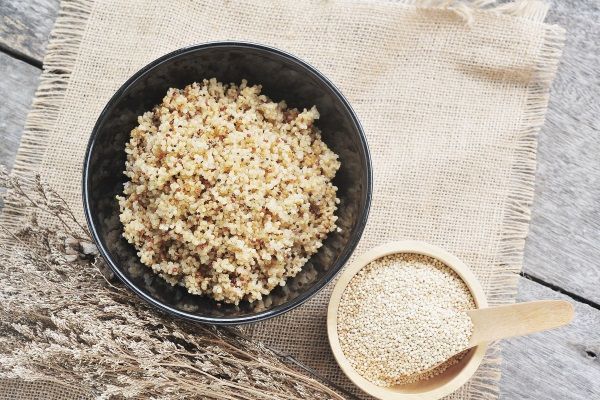
4. ESSENTIAL FATTY ACIDS
Fats and oils have many tasks within our body, and one of them is to serve as building material for all kinds of cells. The type of fat and oil that we ingest is thus hugely important. Fats and oils differ in their structure and in their usability for our body, and can thus have a decisive influence on our metabolism. A differentiation is made in particular between flexible and inflexible fatty acids. Inflexible or saturated fatty acids are abundant in crisps, sweet pastries and ready-made meals. They supply our body with inflexible, rigid building material. Flexible or highly unsaturated fatty acids, on the other hand, build flexible muscle, nerve, heart muscle and immune cells that are resistant, resilient and do not tear easily. These highly unsaturated fatty acids occur abundantly in cold pressed vegetable oils, nuts and fish.
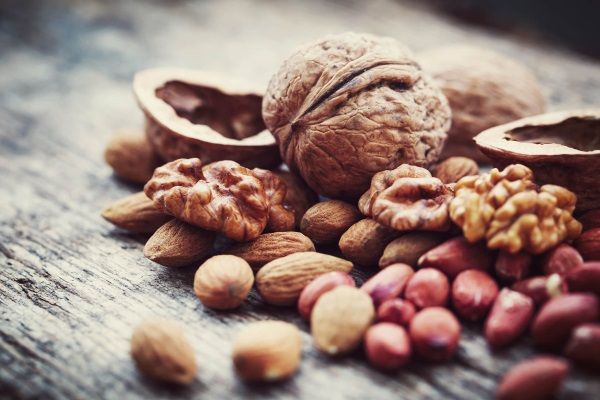
5. ESSENTIAL AMINO ACIDS
They are intelligent and complex organic compounds and fulfill important tasks inside our body: amino acids are the building blocks of our proteins and not a single biochemical process would work without them. Essential amino acids are vital, but cannot be produced by the body itself; they need to be consumed via our food. 8 of the 20 proteinogenic amino acids are essential. Amino acids enable oxygen transport in our blood, regulate blood sugar levels and the energy balance, contribute to building muscles and bones, produce neurotransmitters and regulate our appetite.
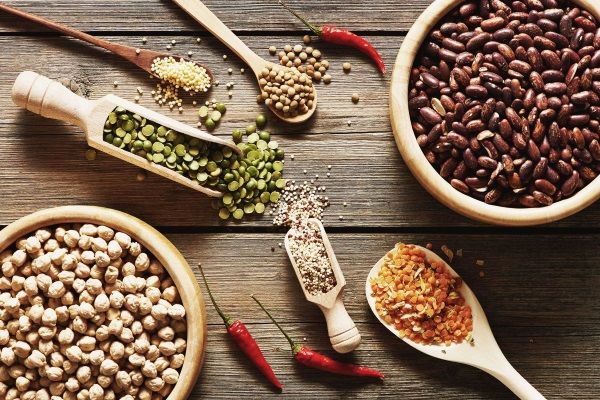
Does this mean I can survive on fats and carbohydrates alone?
Is it enough to consume proteins, fats and carbohydrates to transform food into energy and make new functional cell material? No, we need additional even more basic vital nutrients that we must consume via our daily diet: micronutrients and vital plant-based substances. They may not supply us with energy (calories), but they decide how and to what extent the supplied macronutrients are metabolised in our body.